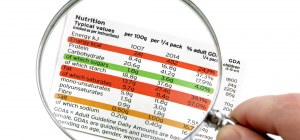Bird flu prevention zone extended to cover whole of England
 BDB Pitmans
BDB Pitmans
The Food Standards Agency (FSA) which is responsible for food safety and food hygiene across the UK has advised that the bird flu prevention zone has been declared across the whole of England on a precautionary basis.
This means it is a legal requirement for all bird keepers to follow strict biosecurity measures. It comes as 13 dead wild birds were confirmed to have the virus in Warwickshire.
The prevention zone means bird keepers across the country must:
- Ensure the areas where birds are kept are unattractive to wild birds, for example by netting ponds, and by removing wild bird food sources
- Feed and water their birds in enclosed areas to discourage wild birds
- Minimise movement in and out of bird enclosures
- Clean and disinfect footwear and keep areas where birds live clean and tidy
- Reduce any existing contamination by cleansing and disinfecting concrete areas and fencing off wet or boggy areas
Keepers with more than 500 birds will also be required to take some extra biosecurity measures including restricting access to non-essential people, changing clothing and footwear before entering bird enclosures and cleaning and disinfecting vehicles.
The prevention zone will be in place until further notice.
Poultry keepers and members of the public should report dead wild birds to the Defra helpline and keepers should report suspicion of disease to APHA. Keepers should familiarise themselves with FSA’s avian flu advice.
There are no plans to carry out any culls or put movement restrictions in place.
The risk to poultry and other captive birds depends, amongst other things, on the level of biosecurity on the premises and the likely contact between kept birds and wild birds, which is why it is now mandatory that all keepers ensure they practice the highest standards of biosecurity.
Pitmans recommend that businesses purchasing from bird keepers should obtain appropriate assurances of compliance with requirements.









